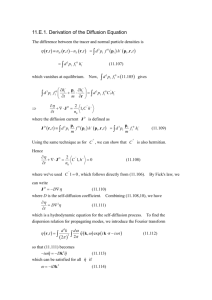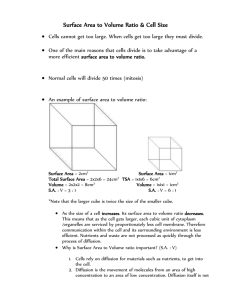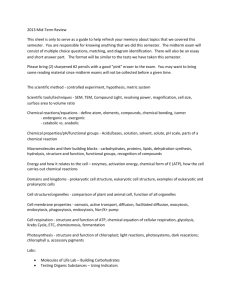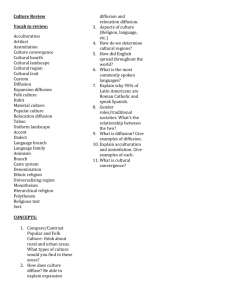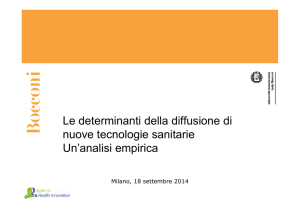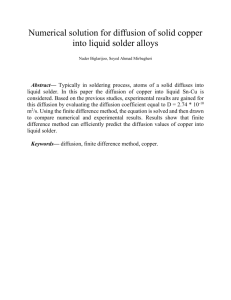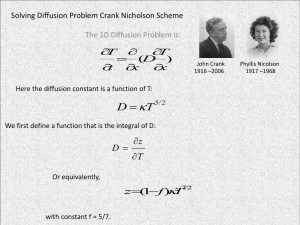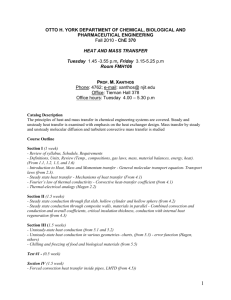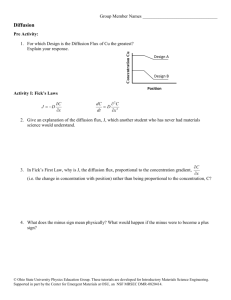Ben-Gurion University of the Negev Material Engineering Name of
advertisement
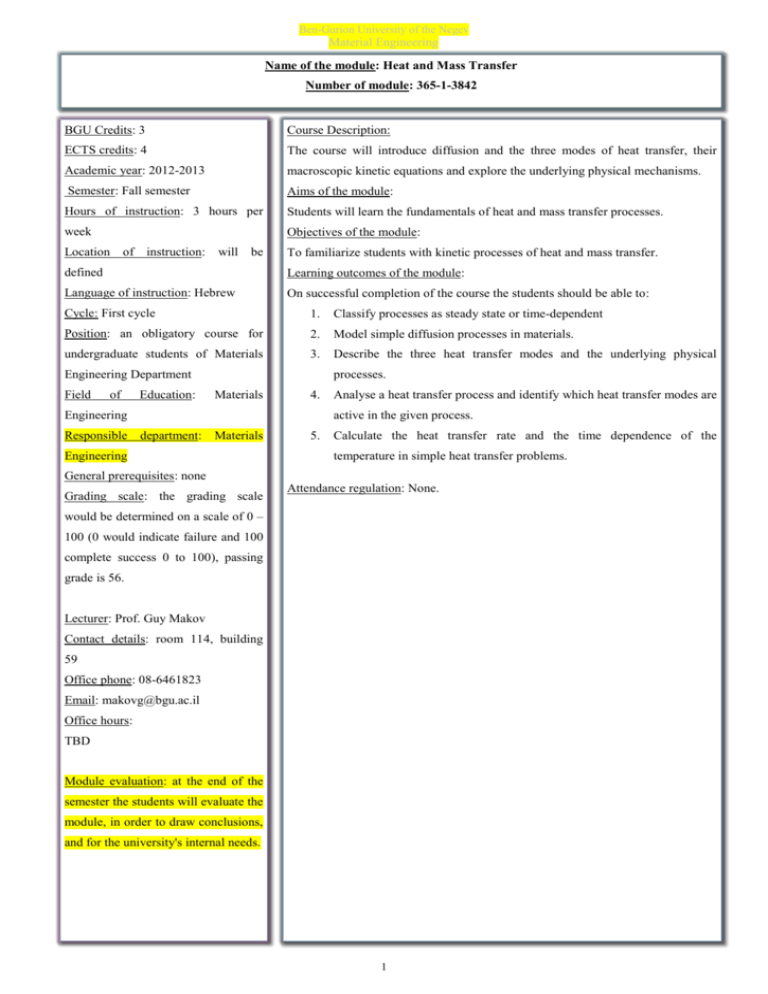
Ben-Gurion University of the Negev Material Engineering Name of the module: Heat and Mass Transfer Number of module: 365-1-3842 BGU Credits: 3 Course Description: ECTS credits: 4 The course will introduce diffusion and the three modes of heat transfer, their Academic year: 2012-2013 macroscopic kinetic equations and explore the underlying physical mechanisms. Semester: Fall semester Aims of the module: Hours of instruction: 3 hours per Students will learn the fundamentals of heat and mass transfer processes. week Objectives of the module: Location of instruction: will be To familiarize students with kinetic processes of heat and mass transfer. defined Learning outcomes of the module: Language of instruction: Hebrew On successful completion of the course the students should be able to: Cycle: First cycle 1. Classify processes as steady state or time-dependent Position: an obligatory course for 2. Model simple diffusion processes in materials. undergraduate students of Materials 3. Describe the three heat transfer modes and the underlying physical Engineering Department Field of Education: processes. Materials 4. Engineering Responsible department: Materials Engineering Analyse a heat transfer process and identify which heat transfer modes are active in the given process. 5. Calculate the heat transfer rate and the time dependence of the temperature in simple heat transfer problems. General prerequisites: none Grading scale: the grading scale Attendance regulation: None. would be determined on a scale of 0 – 100 (0 would indicate failure and 100 complete success 0 to 100), passing grade is 56. Lecturer: Prof. Guy Makov Contact details: room 114, building 59 Office phone: 08-6461823 Email: makovg@bgu.ac.il Office hours: TBD Module evaluation: at the end of the semester the students will evaluate the module, in order to draw conclusions, and for the university's internal needs. 1 Ben-Gurion University of the Negev Material Engineering Confirmation: the syllabus was Teaching arrangement and method of instruction: lectures, which include the confirmed by the faculty academic examples. advisory committee to be valid on Assessment: 2012-2013. Last update: 02.08.2012 Final Exam: 100% Work and assignments: will be defined Time required for individual work: in addition to attendance in class, the students are expected to do their assignment and individual work: at least 2hours per week. Module Content\ schedule and outlines: Introduction and motivation of the course, continuity equations, Ficks law in 1D (3h) Ficks law and the equation of continuity in 3D, steady state solutions of the diffusion equation(3h) Time dependent solutions of the diffusion equation (6h) Mechanisms of diffusion and the random walk model (3h) Heat transfer modes and heat transfer rates (3h) Heat transfer by conduction – steady state and time dependent solutions (9h) Heat transfer by radiation (6h) Heat transfer by convection (6h) Required reading: Diffusion in Solids, P. Shewmon, Wiley, 1989. Fundamentals of Heat and Mass transfer, F.P. Incropera, Wiley 6 th ed. 2007. 2
